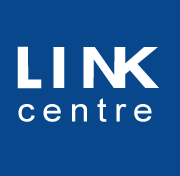The Internationalisation of the MTN Group across Africa and the Middle East
Posted by Ewan Sutherland, 24 February 2016
The MTN Group began as a green field mobile network operator in South Africa, where it was licensed by the De Klerk Administration in 1993. It added pre-paid services in 1996, enabling considerable domestic expansion.
In 1999, its South African investors bought out their foreign partners, Cable & Wireless and SBC (now AT&T), which had brought capital and expertise in the commercialisation of mobile services. Following the example of Celtel, MTN began to seek out opportunities for licences elsewhere in Africa, pursuing economies of scale, and entering into partnerships with politically connected individuals in Cameroon and Nigeria, plus the ruling party in Rwanda. MTN faced rivals following the same strategy of African expansion through obtaining green field licences and the acquisition of existing operators, with the risk that one of these would make an offer for the MTN Group, which was listed on the JSE. Eventually Bharti Airtel, a leading Indian operator, made two unsuccessful bids, instead buying Zain, which had previously bought Celtel. The failure of the Airtel-MTN deal was substantially due to political differences between Pretoria and New Delhi.
In 2005, MTN purchased Investcom, which had licences in Africa, Cyprus, Near East and Middle East, and was negotiating licences in Afghanistan and Iran. These had been acquired in a similar pattern to MTN’s and with similar goals. Investcom was controlled by a leading Lebanese political family, who remain a significant shareholder in the MTN Group. MTN had its own strong political links to the South African government through the African National Congress (ANC).
Opportunities for licences arose almost at random, where governments were persuaded, typically by the IMF and World Bank, or by an operator, to liberalise their telecommunications markets. Acquisitions were equally random, relying on buying out those who were overextended or had run into local political difficulties. Expansion was aided by financialisation of the sector, with, for example, MTN able to borrow to cover the cost of acquiring Investcom.
Perhaps as a result of being late to the game of geographic expansion and its focus on developing countries, MTN holds licences from some politically unattractive governments. Consequently, it pays taxest to, and provides wiretapping, collects metadata and censors (or is a party to censoring) content for, governments that are more autocratic than democratic, including regimes known for their violation of human rights. For example, MTN Uganda was ordered to block access to social media on election day (18 February 2016). There is a conflict for MTN between upholding the human rights of its customers and its security obligations to the states which issued its licences. The business partners of MTN have included political parties, cronies of political leaders, and individuals on a United Nations asset freeze list.
MTN has consistently denied allegations that it displaced a rival in Iran (Turkish operator Turkcell) by corrupt means. The allegations have resulted in extensive arbitration and some litigation, and saw MTN commission independent lawyers to examine its own records, with a view to identifying any malfeasance – a decision which set a precedent for other South African firms when faced with allegations of foreign corruption. While the lawyers cleared MTN, Turkcell’s litigation continues.
The MTN Group successfully expanded from a single country to become an emerging-economy multinational enterprise (EE-MNE) and a major international operator in complex politico-financial deals. However, its acquisitions have stopped, there being few further opportunities, with most markets saturated (making green field licences unattractive) and with the few purchases of existing operators being made by Etisalat and Orange. The MTN Group faces the risk of regime change in Sudan, South Sudan and Syria, with possible loss of licences, given its association with the existing governments. Today, its expansion relies on organic growth and on persuading customers to switch from voice and text messaging to Internet services, requiring users to acquire and use smartphones – resulting in significant changes in business model and threats from over the top (OTT) providers.
This posting is a shortened version of an article published in Communicatio: South African Journal for Communication Theory and Research, and presented at a seminar at the University of South Africa (UNISA).
Ewan Sutherland is a Visiting Adjunct Professor at the LINK Centre.
Note: The opinions expressed are those of the author, and not of the LINK Centre or the University of the Witwatersrand.

